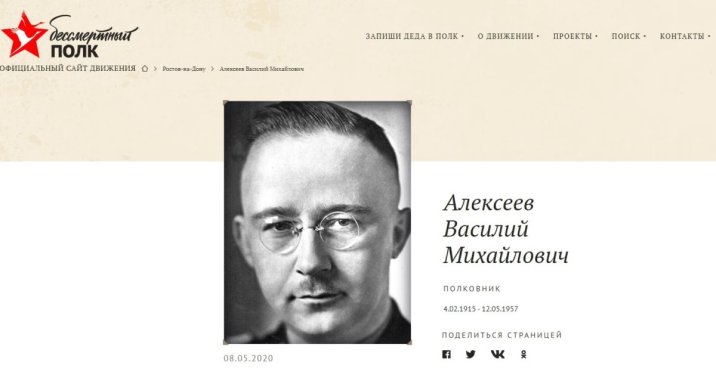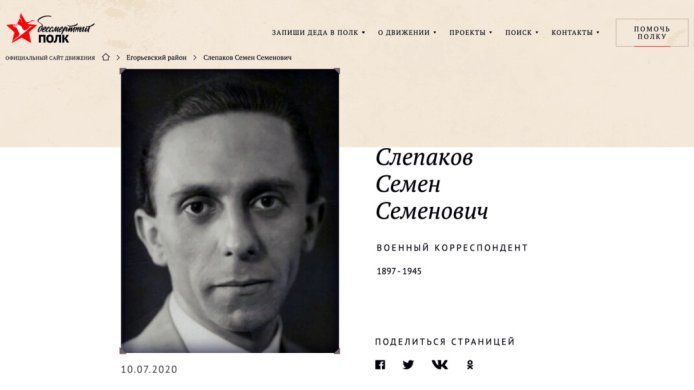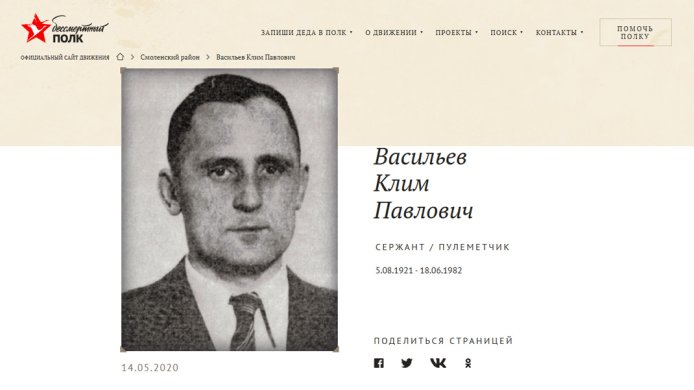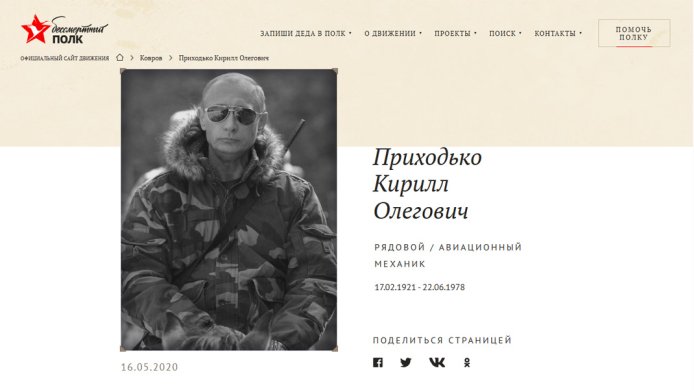Extraordinary fascism: how the russian state is pursuing the rehabilitation of nazism
The Russian authorities have repeatedly justified the war against Ukraine, comparing it with World War II, and their actions with the participation of the USSR in the anti-Hitler coalition. The State has appropriated the right to the past and is actively rewriting history. During the state’s war for the war, the authorities began to actively exploit legislation that assumes responsibility for those who disagree with the official interpretation of World War II. Nevertheless, by May 2025, the number of such criminal cases related to memory abuse, according to our data, is significantly lower than the number of anti-war prosecutions since 2022.
Amongst the war-related cases lead those initiated by the actions estimated by the prosecutors as support to the ‘Russian Volunteer Corps’ or to the ‘Freedom of Russia’ Legion (for instance, in the form of the comments on social networks). Out of 138 cases overall for different political reasons in 2025, the acts of persecution directly connected to the anti-war statements and other forms of protest against the military actions in Ukraine only concerned 35 individuals.
Most often, defendants in political cases were charged with public calls for terrorist activities or organisation of extremist activity
Posts mentioning ‘Russian Volunteer Corps’ and ‘Freedom of Russia» Legion served as evidence for charges of calls for terrorist activities (article 205.2 of Criminal Code). Such was the case for 31 individuals, making it the most common politically motivated criminal charge in 2025.
Another 26 individuals were charged with the organisation of extremist activity (article 282.2 of the Criminal Code). Some of these were prosecuted for affiliation with Jehovah’s Witnesses, some others — for «propaganda of LGTBQA+ movement.» The latter group includes defendants in the Individuum publishing house case, which is recognised as the most drastic intervention into the publishing business since 2022.
Insulting the feelings of believers in Victory
The emergence of legislation in Russia that presupposes responsibility for certain statements on historical topics, and the subsequent persecution of individuals for statements about the Great Patriotic War, may be related to the sacred significance of these historical events for Russians, human rights defenders suggest in a conversation with OVD-Info.
Thus, according to Natalia Morozova, a lawyer with «Memorial», Victory Day and its celebration in post-Soviet Russia, according to researchers at the Moscow Higher School of Social and Economic Sciences have noted, should have become a common idea —a «civil religion» that binds citizens to its symbols and values. Moreover, this was enshrined in the Constitution during the amendments in July 2020 (Part 3, Article 67.1), Morozova notes. In her opinion, the cult of Victory Day celebrations quickly developed its own «sacred things,» just like any other «civil religion.»
«So, the state took over the „Immortal Regiment“ campaign, turning it from a classic grassroots initiative into a mandatory political ritual with portraits of its new saints — the veterans. Monuments dedicated to the victory of the USSR in World War II became places of worship. „Holy Scripture“ is the verdict of the International Military Tribunal and the truthful „information about the activities of the USSR during World War II, about the veterans of the Great Patriotic War“, dedicated only to the Victory, but not to the activities of the USSR from 1939 to 1941. „Desecration“ of any of these state elements related to the Great Patriotic War is punishable by law,» adds the lawyer of «Memorial».
The emergence of memorial legislation in Russia
«Memorial laws» are laws prohibiting the denial of certain historical events. The term came from France, where the so-called Gasso Law was passed in 1990, which for the first time criminalizes Holocaust denial. The author, a French communist Jean-Claude Gasso, proposed it after the case of Robert Faurisson, who denied the existence of gas chambers.
Subsequently, the parliaments of Belgium, Switzerland, and some other European countries followed France’s example. They adopted similar laws over the next 20 years, and in 2008, the European Union adopted a Framework Decision obliging all member states to criminalize denial of the Holocaust and other genocides. Politicians and researchers continue to argue about the legality of these laws: opponents of the memorial legislation argue that it infringes upon freedom of expression and personal opinion.
For the first time, the Russian authorities tried to adopt their memorial law in May 2009 in response to the laws of memory of the Baltic States and Ukraine, adopted in 2004-2008 and affirming the criminal nature of the Soviet regime or equating the Nazi and Soviet occupation. In the original version of the Russian law, criminal liability was provided for «distorting the decisions of the Nuremberg Tribunal or the decisions of national courts based on the Nuremberg Tribunal», «criminalizing the actions of the member States of the anti-Hitler coalition» and «approving or denying the existence of Nazi crimes against the peace and security of mankind».
Although the initial draft was indeed similar to existing memorial laws in European countries, it attracted criticism from human rights defenders and historians. According to their fears, the law’s vague wording could lead to a ban on historical research. The government also criticized the text of the draft law and summarized that it «requires substantial revision». At the same time, President Medvedev created a «commission to counter the falsification of history to the detriment of Russia’s interests» to regulate the official state interpretation of historical events against the background of the absence of a corresponding law. In response, the OSCE adopted the Vilnius Declaration, which equated the Nazi and Stalinist regimes and called on states to present «a united front against all forms of totalitarianism, regardless of their ideological basis», thus continuing the «wars of memory».
In Russia, the adoption of the law was postponed for some time. Still, at the end of February 2014, State Duma deputy Irina Yarovaya returned the issue of memorial legislation to the agenda. Then the deputies noted that the conflict over the Dozhd TV channel in January of the same year had prompted them to take this step. According to the authors of the draft law, a similar law already existed in many European countries. Subsequently, the adopted memorial law consolidated the article on the rehabilitation of Nazism (Article 354.1 of the Criminal Code) and qualified four different crimes:
- denial of the facts established by the verdict of the International Military Tribunal;
- approval of crimes established by the specified sentence;
- dissemination of deliberately false information about the activities of the USSR during World War II;
- dissemination of information expressing apparent disrespect for society about the days of military glory and memorable dates of Russia related to the defense of the Fatherland, as well as desecration of the symbols of military glory of Russia.
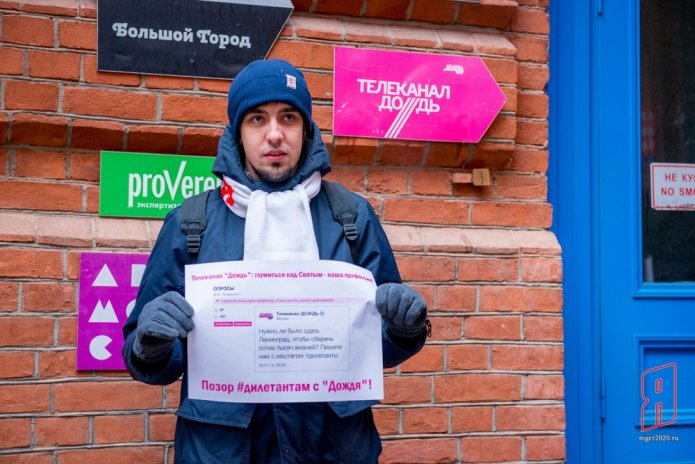
What else happened to memorial legislation:
- On April 27, 2022, a new administrative article (13.48 of the Administrative Offenses Code) came into force, which prohibits equating the leadership of the USSR and Nazi Germany during World War II and denies the «decisive role of the Soviet people in the defeat of Nazi Germany and the humanitarian mission of the USSR in liberating the countries of Europe» (the law itself came into force on July 1, 2021, but its implementation took some time).
- In April 2020, a new article (243.4 of the Criminal Code) was introduced, which provides criminal liability for the destruction or damage of military graves, monuments, steles, obelisks, and other memorial structures dedicated to those who died «defending the Fatherland or its interests, or dedicated to the days of military glory of Russia.» Violations can result in up to three years in prison. Before this article appeared, damaging memorial objects could be classified as petty hooliganism (Article 20.1 of the Administrative Offenses Code), which carries a fine of up to 2,000 rubles (25.5 USD) or detention for up to 15 days, or vandalism (Article 214 of the Criminal Code), with a punishment of up to three years in prison.
- At the end of 2022, the authorities granted the St. George ribbon legislative status as a symbol of military glory. Now, it has become possible to prosecute those who tear down, paint over, or otherwise deface the ribbon. Given that symbols related to the war in Ukraine, such as the letters «Z» and «V,» have become popular to paint in the colours of the St. George ribbon, this law enabled the authorities to prosecute those who express their attitude toward current events, not just those of the past.
Persecution for insulting the memory
According to the report «Crimes Against History» by Grigory Vaipan and Ilya Nuzov, between 2015 and 2019, Russian courts delivered 25 guilty verdicts under the article on the rehabilitation of Nazism. Most of the accused were charged with mentioning international crimes committed by the USSR between 1939 and 1945, doubting the official version of the Soviet Union’s role in World War II, and drawing parallels between current events and historical events of that time. The only acquittal was in the case of Roman Yushkov, a resident of Perm, who denied the Holocaust. Yushkov called the estimate of six million Holocaust victims a «great deception» and referred to the events as «shameless propaganda for the goyim, Germans, Russians, and everyone else on the list.»
In total, we found 212 instances of prosecution initiated under the criminal cases of the rehabilitation of Nazism since 2022. This list includes persecutions where the accused likely did not intend to promote Nazi values, and their actions might have been considered differently if Russia did not have memorial laws in their current form.
The most common accusation (at least 89 individuals in criminal cases over three years) was the desecration of monuments related to World War II. These cases fall into two unequal subgroups — cases of thoughtless desecration of Great Patriotic War memorials (78 individuals) and so-called semiotic partisanship (11 individuals), which involve anti-war actions using Great Patriotic War symbols.
The number of unjustified criminal persecutions under the article on the rehabilitation of Nazism has been growing in recent years
Cases of unintentional desecration of memorials
The most common charges under the article on the rehabilitation of Nazism (354.1 of the Criminal Code) are related to the desecration of World War II memorials. Most of the accused are charged with rehabilitating Nazism for:
- Trying to light a cigarette from the Eternal Flame and throwing cigarette butts into the fire;
- Cooking food on the Eternal Flame;
- Attempting to extinguish the Eternal Flame;
- Dancing near the Eternal Flame;
- Attempting to urinate on the Eternal Flame;
- Drinking alcohol near the Eternal Flame.
After 2014, the authorities began placing more importance on disrespectful interactions with the Eternal Flame than before the memorial laws were enacted. Moreover, along with this, the significance of prosecuting such actions for the state increased, which is why punishment for individuals involved in such cases also became stricter. Before the adoption of memorial laws, law enforcement might have classified unintentional desecration of a memorial as vandalism (Article 214 of the Criminal Code). Still, now, in most known cases, such actions lead to a case of the rehabilitation of Nazism.
It is essential to reiterate that we do not have complete information about such cases. In particular, many news reports on unintentional desecration of Great Patriotic War memorials do not specify whether law enforcement initiated a case. However, there is at least one known case from 2021 in which a resident of Khimki (Moscow Region) was accused only of vandalism after throwing a television into the Eternal Flame.
Initially, a case of vandalism was also initiated against a homeless man in Miass, Chelyabinsk Region, who warmed himself and dried his clothes at the «Sorrowful Mother» memorial. He threw plastic wreaths into the fire, which melted and damaged the star of the monument. The case was reclassified as rehabilitation of Nazism only after local media reported the incident, and the Investigative Committee took up the investigation.
Most of the individuals involved in unjustified prosecutions under the article on the rehabilitation of Nazism are men ages 18 to 30.
Another well-known case occurred the same year: 19-year-old blogger Matvey Yuferov was sentenced to four years in prison for urinating on a display stand featuring a portrait of a World War II veteran. Typically, case materials in such proceedings claim that the defendants deliberately intended to insult historical memory, yet the courts rarely explain how they concluded that there was deliberate intent. For instance, in the case of Denis Davydov from Yoshkar-Ola—sentenced to three years in a high-security penal colony for throwing a cigarette butt into the Eternal Flame—it is stated that he «stepped onto the black granite pedestal, an integral part of the monument, moved along it to the five-pointed star at the center, and placed his shoed feet on it, ” allegedly „wishing to publicly demonstrate his superiority over others and a cynical disregard for norms of morality and decency.“ Nearly all such verdicts note that the defendants were under the influence of alcohol.
Security forces also invoke the rehabilitation of Nazism in response to criticism of memorials or artworks related to World War II. For example, Bashkortostan blogger Rasul Akhiyaretdinov was sentenced to one year of corrective labor for a 2024 video in which he stood on Mamayev Kurgan in Volgograd and appealed to Vladimir Putin to dress the «Motherland Calls» monument more modestly. In 2022, a case concerning the desecration of military glory symbols was initiated against performance artist Oleg Kulik for his sculpture Big Mother, after State Duma deputies Elena Yampolskaya, writer Zakhar Prilepin, and Alexander Khinshtein (also a deputy at the time) filed complaints. They believed Kulik’s work was a parody of the «Motherland Calls» monument. The current status of that case is unknown.
In some cases, the defendants appeared unaware of the sacred significance that WWII memorials hold for Russians. For example, three Turkish citizens who were seen «wiping and dusting their shoes on the base of the Eternal Flame monument» were each sentenced to one year in a settlement colony.
Semiotic Guerrillas
While the Russian president, state agencies, government-controlled media, and pro-war correspondents consistently draw parallels between the war in Ukraine and World War II, Russians who oppose the war have similarly invoked World War II symbols to express dissent. As a result, memorial laws have also been used to target anti-war activists.
We are aware of at least 11 cases involving such «semiotic guerrillas» who engaged with WWII iconography to protest the invasion of Ukraine. Among the accused was Zulfiya Sitdikova, a resident of Kazan, sentenced to a two-year suspended sentence for holding posters that read «No to war» and «9 May [spelled with the Latin ‘w’ instead of ‘m’]». In addition to being charged with rehabilitation of Nazism, she was also accused of «discrediting the use of the Armed Forces of the Russian Federation» (Article 280.3 of the Criminal Code).
Other political cases involving historical memory and the war
Authorities have also initiated criminal cases for the rehabilitation of Nazism that are indirectly connected to the full-scale war in Ukraine.
In June 2023, a criminal case on the rehabilitation of Nazism was opened against Mikhail Belousov, an associate professor at the Institute of History at St. Petersburg State University. He was accused of denying facts established by the Nuremberg Trials and spreading knowingly false information about the USSR’s actions during World War II. According to investigators, Belousov «denied connections between Hitler’s racial theory and the course of World War II» and allegedly «saw signs of historical falsification in certain topics» related to the war.
Just days earlier, Belousov had been dismissed from the university. Before that, pro-war activists had denounced him for stating that the «Z» war symbol should only be used in a post-ironic context and that «direct and open approval of rushism is repugnant.» He reportedly wrote this on Telegram after the university set up a spontaneous memorial to a student who died in the war in Ukraine.
Status of the defendants in rehabilitation of nazism cases
Status of rehabilitation of nazism cases defendants
Two criminal cases for the rehabilitation of Nazism were initiated against historian Tamara Eidelman, who publicly opposed the invasion of Ukraine. According to the Moscow prosecutor’s office, her YouTube channel featured videos expressing «blatant disrespect for Russia’s military glory day and commemorative date associated with the defense of the Fatherland, ” as well as insulting the memory of defenders of the Fatherland. It was not specified which of Eidelman’s approximately one thousand videos were under scrutiny. The grounds for the second case also remain unknown.
«Immortal Regiment» Cases
Another common category of historical memory offenses involves people who uploaded photos of Nazis to the «Immortal Regiment» website between 2020 and 2023. The spike in such cases can be attributed to the COVID-19 pandemic and the resulting move to an online format for the «Immortal Regiment» campaign, during which Russians were encouraged to upload photos of veteran relatives. On the eve of these online events, unknown individuals began mass-uploading portraits of Adolf Hitler, Heinrich Himmler, and other Third Reich figures.
According to the movement’s leadership, as a result, moderators had to delete around 20,000 profiles. The Investigative Committee employees later traced the IP addresses of those who had uploaded the images on the movement’s website. Some were fined, others sentenced to community service or community work. Eleven cases initiated in 2020 and active until 2022 were dropped due to the statute of limitations. A harsher outcome befell David Eichendorf, a resident of Tyumen, who also tried to upload Hitler’s photo to the Immortal Regiment website. The man, who was also accused of spreading false information about the Russian army, was sentenced to 6.5 months in a settlement colony.
As far as is known, none of the defendants in the «rehabilitation of Nazism» cases related to the «Immortal Regiment» website accompanied the uploaded photographs with statements approving of Nazism or denying Nazi crimes.
Saint George’s Ribbon
Since 2022, any interaction with the St. George ribbon, designated as a symbol of military glory, has become another reason for prosecuting individuals in Russia. For instance, a criminal case was opened against a resident of the Bryansk region, Alexander Koshechko, on charges of desecrating symbols of Russia’s military glory (Part 3, Article 354.1 of the Criminal Code), after he was accused of tearing the ribbon off a serviceman’s coat, trampling it into the mud, and «uttering offensive remarks» while intoxicated. He was later acquitted because the video did not show the ribbon attached to the coat.
The prosecution of Koshechko is one of 18 known cases initiated over the desecration of the St. George ribbon. In some of these cases, the individuals involved used the ribbon to criticize the actions of the Russian authorities, who had adopted it as one of the symbols of the war in Ukraine. Criminal cases have been initiated over actions such as:
- a portrait of Putin drawn in the shape of a penis, incorporating the St. George ribbon;
- a black-and-white portrait of Putin with holes in place of his eyes and mouth, from which pieces of the St. George ribbon protrude;
- burning a St. George ribbon on camera and encouraging others to do the same;
- a comment featuring an image of an «artificial penis on a stand» with the St. George ribbon tied to it, accompanied by a caption;
- an image of the ribbon adorned with satanic pentagrams;
- a video showing the removal of a St. George ribbon arranged in the shape of the letter «Z»;
- reposting a publication from the profile «Russia: Fascism Renewed» on Odnoklassniki, which allegedly expressed a negative attitude toward the ribbon;
- an image of the ribbon with a caption stating it is a marker of «a person with a non-traditional sexual orientation», along with a photo of a corpse labeled «how to wear the St. George ribbon properly»;
- the destruction of graffiti in the shape of the letter Z with the slogan «We don’t abandon our own» (proper to the Z-movement) and the St. George ribbon, recorded on video;
- an image of the Nazi Germany coat of arms tied with the St. George ribbon, alongside a photo of collaborator Ivan Kononov, with the caption: «During World War II, only RUSSIAN Vlasov Corps, which fought on the side of the NAZIS awarded people with St. George ribbons.»
Cases over criticism of Victory Day celebrations
Since the memorial legislation came into effect, law enforcement officers have initiated at least 32 criminal prosecutions against individuals who criticized state-sponsored events commemorating Victory Day. According to available data, the majority of these cases (18) involve members of the «Vesna» (Spring) movement, who were collectively charged in a single case with disseminating disrespectful information about days of military glory.
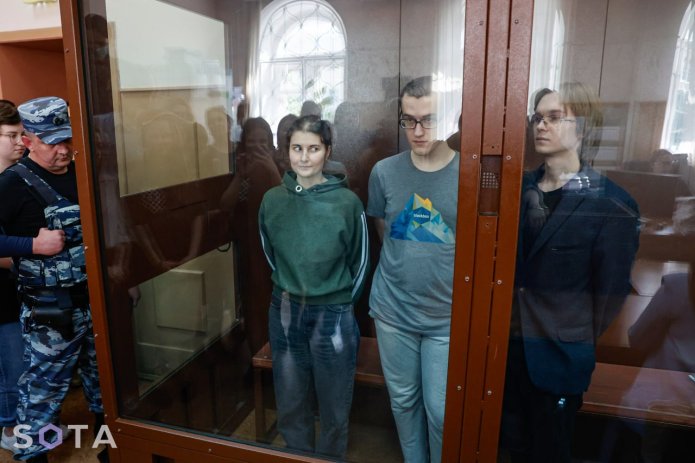
Law enforcement also classified a social media post by a resident of the Ryazan region as «disseminating disrespectful information about May 9.» In the post, the man claimed that the holiday had been «discredited,» having transformed from a day of remembrance for a «national catastrophe» and «genetic degradation» into a «terrifying orgy, a celebration of death.» He was sentenced to one year of compulsory labor.
- Another defendant in a case concerning the «rehabilitation of Nazism» was sentenced to two years of compulsory labor for reposting a publication by the Feminist Anti-War Resistance. In the post, the activists criticized the cult of Victory amid Russia’s aggression in Ukraine and announced alternative mourning events to be held on May 9.
Administrative cases
Russian memorial legislation also includes two administrative offenses:
- displaying Nazi symbols (prohibited under Article 20.3 of the Code of Administrative Offences);
- equating the USSR and the Third Reich in the context of World War II (prohibited under Article 13.48 of the Code of Administrative Offences).
In some cases, law enforcement has used these articles to prosecute Russians who openly oppose the authorities. However, there are also known instances where individuals were targeted simply for sincerely expressing their views on Soviet policies during World War II.
Equating the USSR and the Third Reich
The article prohibiting comparisons between the USSR and the Third Reich during World War II is used relatively rarely. As of May 2025, 11 administrative cases under this article are known. Two of them were initiated against the same person.
- A deputy of Moscow’s Krasnoselsky District, Kirill Suvorov, was arrested for 15 days for a social media post in which the last two letters of the abbreviation КПСС (CPSU) were replaced with the Nazi SS symbol.
- Vadim Kiselev, a resident of Krasnodar, was fined 1,000 rubles for suggesting in a neighborhood chat that neighbors read the memoirs of art historian Nikolai Nikulin, who entered Berlin in 1945. The author reflected on the attitude of Soviet soldiers toward the German civilian population.
- Politician Leonid Gozman was arrested for 15 days over a 2020 post in which he criticized a then-proposed law banning the comparison of the Soviet Union and Nazi Germany. The post said: «Hitler is absolute evil, but Stalin is even worse. The SS are criminals, but the NKVD are even scarier, because the Chekists killed their own. Hitler unleashed a war on humanity. The Communists declared total war on their people.»
- Blogger Konstantin Ulyankin was fined for adding the film «My Honour Was Loyalty» by Italian director Alessandro Pepe My Honor Was Loyalty, which tells the story of a soldier from the SS division Leibstandarte. At the beginning of World War II, the soldier calls himself a patriot and actively supports the Third Reich’s authorities, but gradually changes his point of view.
Prohibition of the display of Nazi attributes
The authorities have used memorial legislation to pressure political activists, also prosecuting them under administrative cases related to the promotion and display of Nazi symbols (Article 20.3 of the Code of Administrative Offences).
In particular, in December 2021, Pussy Riot member and former municipal deputy Lucy Stein was found guilty of displaying Nazi symbols and was arrested for 14 days after posting a screenshot from someone else’s video in which a Nazi cap had been digitally added to her image.
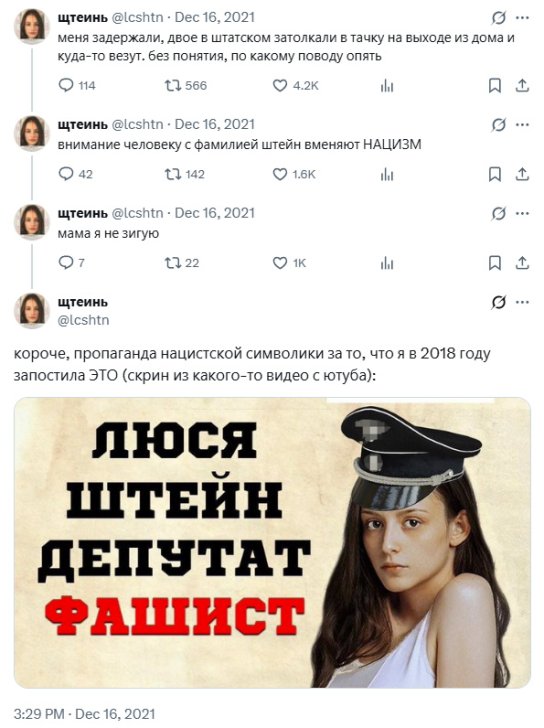
A few months later, in February 2022, another Pussy Riot member, Maria Alekhina, was also arrested for 15 days. She was found guilty of displaying Nazi symbols for a 2015 Instagram post featuring a photo of three girls wearing hijabs. Alekhina had captioned the post with Indian symbols resembling a swastika.
In total, we are aware of at least 176 administrative cases in which individuals were unjustly accused of displaying Nazi symbols. In some instances, like with the Pussy Riot member, Russians were prosecuted for criticizing the authorities. For example, at least 17 prosecutions were initiated against people who posted satirical images of Vladimir Putin featuring Nazi symbolism.
In other cases, prosecutions for displaying Nazi symbols have been initiated for absurd reasons. For example, in April 2022, the Yelninsky district court of Smolensk region fined a resident a thousand rubles (10$) for having published an excerpt from the cartoon ‘Tom and Jerry’ in which the cat was dressed in a Nazi uniform in VKontakte in 2019.
Persecution of historians
In addition to people who unintentionally desecrated memorials to the Great Patriotic War or used its symbols to criticise the invasion of Ukraine, the authorities also initiated persecution of historians who spoke publicly about controversial actions of the authorities and the military in the USSR. The persecution of some of the specialists is particularly related to the fact that they researched the topic of Stalinist repressions and indirectly touched upon the events of the Great Patriotic War.
Criminal cases against historians
In March 2023, a criminal case on the rehabilitation of Nazism was brought against ‘unidentified employees’ of the now eradicated International Memorial. On 21 March, eight employees were searched in this case. None of them has yet been charged, but the law enforcers have not dropped the case.
The reason for the prosecution of unidentified Memorial employees was the cases of three people whom the organisation had included in the database ‘Victims of Political Terror in the USSR’. One of them, Rudolf Naimiller, was included in the database as a ‘special settler’ displaced from the Odessa region immediately after the war. Without access to the archives, it is impossible to say whether he was displaced as an ethnic German or as a collaborator. The case against Memorial may be related to the fact that the archives of the Federal Security Service Directorate for the Arkhangelsk region contain a criminal case against Naimiller, which was only declassified in 2021.
Pyotr Dvoinikh and Pyotr Dolzhenkov were included in Memorial’s database because their names appear in the fourth volume of the Book of Memory of Victims of Political and Administrative Repressions in Tatarstan. Both died in the colonies in Kazan (a city on the Volga River) in the second half of the 1940s, but historians still do not have access to their cases.
Apart from professional historians and researchers, security forces have prosecuted more than a dozen people who compared the roles of Joseph Stalin and Adolf Hitler in World War II.
‘Foreign Agents’
In addition to direct persecution, historians also face other types of state pressure, such as being attributed negative statuses. However, the authorities were not so active in assigning negative statuses to historians, as they were to other professional groups that regularly faced state pressure, such as journalists.
Since February 2022, the Ministry of Justice has included nine professional historians and researchers specialising in Russian history in the registry of ‘foreign agents’, five of whom were affiliated with Memorial:
- Jan Rachinsky — former chairman of the board of the eradicated International Memorial Society;
- Yuri Pivovarov — historian, former director of the Institute of Scientific Information on Social Sciences of the Russian Academy of Sciences;
- Tamara Eidelman — blogger, honoured teacher of the Russian Federation;
- Nikita Sokolov — deputy executive director of the Yeltsin Centre, formerly a participant in International Memorial Society projects;
- Andrey Zubov — former employee of the Moscow State Institute of International Relations, orientalist;
- Nikolai Epple — author of the book ‘An Inconvenient Past’ about different approaches to dealing with difficult pasts;
- Irina Shcherbakova — one of the founders of the International Society «Memorial»;
- Mikhail Chimarov — Memorial activist, researcher of Stalinist repressions;
- Sergey Stepanov — Tambov journalist, local ‘Memorial’ activist and researcher of Stalinist repressions.
All the historians who received the status of ‘foreign agent’, in one way or another, covered the state crimes of the USSR, in particular, Stalin’s repressions. Likely, the inclusion of historians in the registry of the Ministry of Justice is not directly related to statements about the Great Patriotic War, as all nine ‘foreign agents’ in one way or another covered state crimes of the USSR, in particular, Stalinist repressions. At the same time, it is impossible to determine exactly what the reason for this status was, given the broad interpretation of the law and the anti-war statements made by some of the researchers.
Conclusion
Because of the broad wording/interpretation of modern Russian memorial laws, security forces have begun to charge people who probably were not trying to promote the values of the Third Reich with criminal rehabilitation of Nazism. Such cases involved people who unintentionally desecrated monuments to the Great Patriotic War: homeless people, Russians holidaying at memorial sites, vandals or casual tourists.
In the future, the number of defendants in Nazi rehabilitation cases initiated because of unintentional insult to historical memory may increase. In June 2025, the State Duma began discussing a proposal by the Prosecutor General’s Office to lower the age of criminal responsibility for the destruction or damage to monuments of military glory from 16 to 14 years of age. Thus, according to the Ministry of Justice, teenagers have been responsible for the majority of cases of desecration of monuments since 2022; however, their exact age and the circumstances of the damage to memorials remain unknown.
Activists who used the symbolism of the Great Patriotic War to criticise the full-scale invasion of Ukraine have also become defendants in Nazi rehabilitation cases because the authorities and propagandists exploited it to justify the fighting. Against the backdrop of the war in Ukraine, historians who recounted the events of the Great Patriotic War were also accused of insulting historical memory.
The security forces also exploited the memorial legislation to put pressure on political activists while the courts unjustifiably found them guilty of displaying Nazi symbols.
In the remaining cases of persecution related to insulting the memory, it was often initiated because Russians publicly expressed alternative viewpoints about the Great Patriotic War and the celebration of Victory Day that did not correspond to the official state position. In addition, historians and researchers who indirectly touched upon the subject of the Great Patriotic War while studying the topic of repression in the USSR became victims of pressure from the authorities and security forces as well.
The material was prepared in co-operation with Natalia Morozova, a lawyer of the Memorial Human Rights Defence Centre


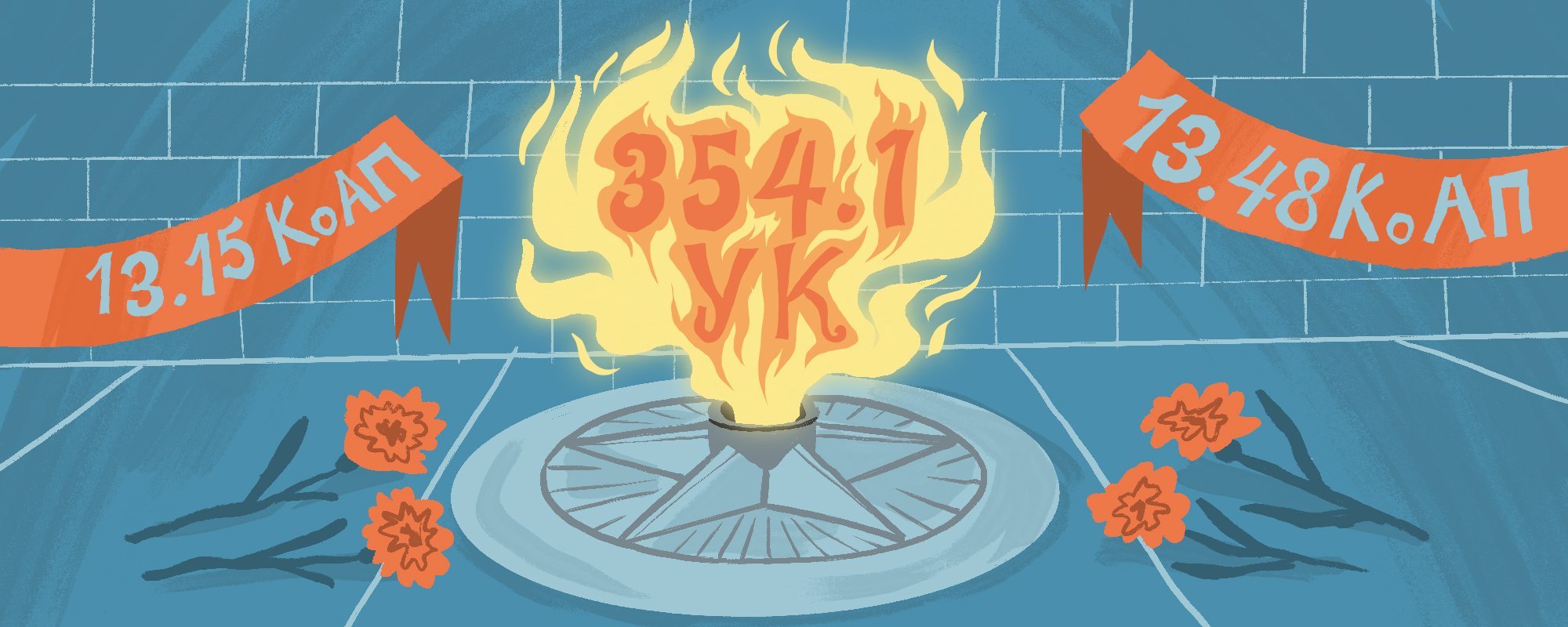
 Download PDF version
Download PDF version


